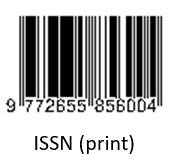Sentiment Analysis on Tweets about Waste Problem in Yogyakarta using SVM
(1) Faculty of Science and Technology, Sanata Dharma University, Yogyakarta
(2) Faculty of Science and Technology, Sanata Dharma University, Yogyakarta
(3) Faculty of Science and Technology, Sanata Dharma University, Yogyakarta
(4) Faculty of Science and Technology, Sanata Dharma University, Yogyakarta
(5) Faculty of Literature, Sanata Dharma University, Yogyakarta
(*) Corresponding Author
Abstract
Yogyakarta Province is facing a waste management problem. The closure of the only Integrated Waste Treatment Plant in Piyungan, Yogyakarta, has a huge impact in society life. Much waste generated from industries and homes cannot be handled appropriately until final disposal. This problem can be solved through government policies. Its effectiveness can be seen from the public response on social media. Sentiment analysis on social media, especially Twitter, can be efficiently conducted using Support Vector Machines. Data is directly obtained from Twitter, and text processing is performed on it. The accuracy rate of sentiment analysis using SVM on the topic of garbage in Yogyakarta is quite good at 87%.
Full Text:
PDFReferences
M. Fakhruddin, “Yogyakarta Darurat Sampah,” Republika, May 13, 2022. [Online]. Available: https://news.republika.co.id/berita/rbq3q8318/yogyakarta-darurat-sampah
W. F. Satrya, R. Aprilliyani, and E. H. Yossy, “Sentiment analysis of Indonesian police chief using multi-level ensemble model,” Procedia Computer Science, vol. 216, pp. 620–629, 2023, doi: https://doi.org/10.1016/j.procs.2022.12.177.
O. Czeranowska et al., “Migrants vs. stayers in the pandemic – A sentiment analysis of Twitter content,” Telematics and Informatics Reports, vol. 10, p. 100059, 2023, doi: https://doi.org/10.1016/j.teler.2023.100059.
S. Daulatkar and A. Deore, “Post Covid-19 Sentiment Analysis of Success of Online Learning: A Case Study of India,” in 2022 9th International Conference on Computing for Sustainable Global Development (INDIACom), 2022, pp. 460–465. doi: 10.23919/INDIACom54597.2022.9763272.
I. Taufik and S. A. Pamungkas, “ANALISIS SENTIMEN TERHADAP TOKOH PUBLIK MENGGUNAKAN ALGORITMA SUPPORT VECTOR MACHINE (SVM),” Jurnal Logika, vol. 8, no. 1, 2018.
R. P. Saputri, W. S. Winahju, and K. Fithriasari, “Klasifikasi Sentimen Wisatawan Candi Borobudur pada Situs TripAdvisor Menggunakan Support Vector Machine dan K-Nearest Neighbor,” Jurnal Sains dan Seni Institut Teknologi Sepuluh November, vol. 8, no. 2, 2019, doi: 10.12962/j23373520.v8i2.44391.
Imam Fahrur Rozi, Elok Nur Hamdana, and Muhammad Balya Iqbal Alfahmi, “PENGEMBANGAN APLIKASI ANALISIS SENTIMEN TWITTER MENGGUNAKAN METODE NAÏVE BAYES CLASSIFIER (Studi Kasus SAMSAT Kota Malang),” JIP, vol. 4, no. 2, Feb. 2018, doi: 10.33795/jip.v4i2.164.
T. I. Saputra and R. Arianty, “IMPLEMENTASI ALGORITMA K-MEANS CLUSTERING PADA ANALISIS SENTIMEN KELUHAN PENGGUNA INDOSAT,” Jurnal Ilmiah Informatika Komputer, vol. 24, no. 3, 2019, doi: http://dx.doi.org/10.35760/ik.2019.v24i3.2361.
B. Pang and L. Lee, “Opinion Mining and Sentiment Analysis,” Found. Trends Inf. Retr., vol. 2, no. 1–2, pp. 1–135, Jan. 2008, doi: 10.1561/1500000011.
M. Rathan, V. R. Hulipalled, P. Murugeshwari, and H. M. Sushmitha, “Every post matters: A survey on applications of sentiment analysis in social media,” 2017 International Conference On Smart Technologies For Smart Nation (SmartTechCon), pp. 709–714, 2017.
DOI: https://doi.org/10.24071/ijasst.v6i1.7415
Refbacks
- There are currently no refbacks.
Publisher : Faculty of Science and Technology
Society/Institution : Sanata Dharma University

This work is licensed under a Creative Commons Attribution 4.0 International License.












